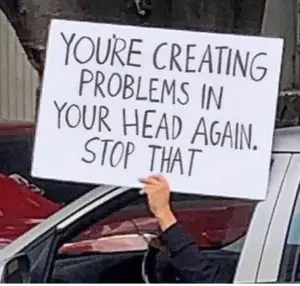 Among entrepreneurs, it’s generally well-acknowledged that your mindset plays an important role in your success. This is true not only on a large scale in achieving your life goals, but also on a small scale in the way your mental state affects your day-to-day. A healthy and positive mindset goes a long way to helping you feel your best, stay creative, be productive, and have the energy you need to get through the day. It affects the way you approach problems and how you interact with others as well.
Among entrepreneurs, it’s generally well-acknowledged that your mindset plays an important role in your success. This is true not only on a large scale in achieving your life goals, but also on a small scale in the way your mental state affects your day-to-day. A healthy and positive mindset goes a long way to helping you feel your best, stay creative, be productive, and have the energy you need to get through the day. It affects the way you approach problems and how you interact with others as well.
There can be a lot of negativity in the world that can influence your mindset, whether that’s the news getting you down, something going wrong in your day, or challenging times in life. It’s sometimes difficult not to let the world affect your mood. As people, we’re affected by the energies around us, whether positive or negative. If you’ve ever found your mood lifted by a pleasant social interaction or, conversely, found yourself in a huff after someone said something rude, you’ve undoubtedly experienced this exchange of energies or moods. Maybe you’ve felt depressed after reading something sad or spending time catching up on the news, which tends to focus on negative events that create an emotional response.
It’s important to recognize what aspects of your life are influencing you, as well as the energy you present to others, especially as a leader in your business. When you get into a negative mindset, it affects not only your own productivity and personal happiness, but can also affect the way you interact with others and your leadership style.
Ultimately, you are responsible for your own happiness. We’re all susceptible to negative emotions and there’s nothing wrong with occasionally feeling down. But the problem arises when you fall into a negative thinking pattern.
What does a negative thinking pattern look like? To identify it, think about what kinds of things you say to yourself. Do you ever say internally, “I could never do that”? Maybe you look in the mirror and criticize something you see there, or you get to the end of a long day and think, “I should have accomplished more.” The problem with thoughts like these is that sometimes you begin to believe them. It can inhibit you from taking risks, stretching yourself outside your comfort zone, or achieving your goals. It can make you doubt yourself and undermine your abilities.
Negative thinking contributes to stress and encourages you to give up when you face resistance. Even negative or judgmental thoughts about others can impact your own mood, and it’s hard to work effectively when you’re feeling down or stressed out.
On the flip side, positive thinking can increase productivity and help you push through obstacles. Turning negative thoughts to positive ones isn’t always easy, but with practice, you can teach yourself to think more positively. It starts by recognizing when you’ve fallen into a negative thinking pattern or when someone or something is dragging you down.
Thankfully, there are things you can do to disrupt negative thinking and get yourself back on track. These are especially helpful when you’re having a bad day or even a bad week and need to reset.
- Go for a walk.
A walk is beneficial in so many ways. It gets your blood moving, which can help you think more clearly, and exercise is known to improve mood. It also gives you fresh air and exposure to sunlight, which are both good for your mental clarity and mood. It gives your eyes an opportunity to relax from a screen if you’ve been on a computer all day. I recommend leaving your phone behind to give yourself more space to think. The walk won’t do you nearly as much good if you spend it texting or checking your email, and if you have your phone, be realistic—you’re going to be looking at it. Without your phone, you might be bored, but that’s not necessarily a bad thing. Take the time to breathe and let your mind empty out. This simple act of taking a walk may not seem like much, and when you’re in a bad mood it can be difficult to convince yourself it’s worth the time to go outside, but it can make a major difference.
- Connect with a positive person.
Is there someone in your life who is great at staying positive who can refuel your positive energy when it’s depleted? This could be someone you go to for support and encouragement, such as a family member, or simply a team member or friend who always has a smile on their face. A simple positive interaction with someone else, even if you’re not discussing your problems, can sometimes be enough to reset your mood. Smiling is contagious, and just pretending to be happy for the span of a conversation can trick your brain into feeling happier. We’re social creatures, so positive social interactions make us feel good.
- Practice gratitude.
By now, you’ve likely heard about the remarkable benefits of gratitude. Take a moment to step away from your work and write down what you’re grateful for. Don’t just make a list—really think about each thing and take a moment to appreciate it. It’s a great idea to do this in combination with one of the other suggestions here, and it can work wonders as a daily practice to keep you in a positive mindset. Many people use a journal to write down what they’re grateful for as part of their morning routine to set the day up for positivity.
- Do something kind for someone else.
This may be the most powerful trick on this list. It’s hard to feel bitter or negative when you’re not focused on yourself, so try focusing on someone else and extending kindness. Not only will it make you feel better just by knowing you’ve done something good, but seeing the person’s reaction can lift your mood even more. Is there someone in your office you want to show your appreciation to or who might be going through something difficult? Bring them a gift or go out of your way to do something for them, and see how you feel afterward. I’m willing to bet you’ll start to feel better the moment you come up with an idea for how to bless someone with kindness.
All energy is contagious, and you have the power to change it in your favor. Recognize the negative thought patterns you’re susceptible to so they don’t control you, as well as identifying the influences in your life that drag you down. We all want to be happier in our daily lives, and you can choose how you respond to negativity and develop a healthy mindset to help you get the most out of every day.




